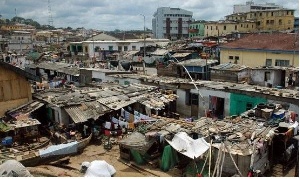In 2013, the Ghana Aid Effectiveness Forum (GAEF) revealed that in spite of the country’s middle-income status, about seven million Ghanaians are living below the poverty level.
This represents about 28 percent of the population of the country.
The GAEF is a group that focuses on tracking Ghana’s performance in eradicating poverty and using foreign aid effectively.
According to the Programmes Manager of SEND Ghana, George Osei Bimpeh, the rate of poverty reduction had been slower in the rural areas, as compared to the urban areas.
Mr. Bimpeh made the statement in an interview with XYZ Business. He also added that, the country has sidelined the regions in the Northern parts of the country, especially the Upper West Region when it comes to wealth distribution.
“In the urban areas we have done so well but in the rural areas we have done poorly and also in the three northern regions, we haven’t done enough,” he concluded.
Read the original story published by GhanaWeb on March 25, 2013
About seven million Ghanaians are still living below the poverty level, despite Ghana's current middle-income status.
That’s according to the Ghana Aid Effectiveness Forum, a group that focuses on tracking Ghana’s performance in eradicating poverty and using foreign aid effectively.
This represents about 28 percent of the population of the country.
According to George Osei Bimpeh, who is also the Programmes Manager at SEND Ghana, the rate of poverty reduction had also been slower in the rural areas than the urban areas.
In an interview with XYZ BUSINESS, he said the country has not done much in the three regions in the north of the country, particularly the Upper West region.
“Have we ensured that reduction in poverty levels has been distributed across the entire country?” Mr. Bimpeh said.
He added that “in the urban areas we have done so well but in the rural areas we have done poorly and also in the three northern regions, we haven’t done enough”.
General News of Wednesday, 25 March 2020
Source: www.ghanaweb.com













